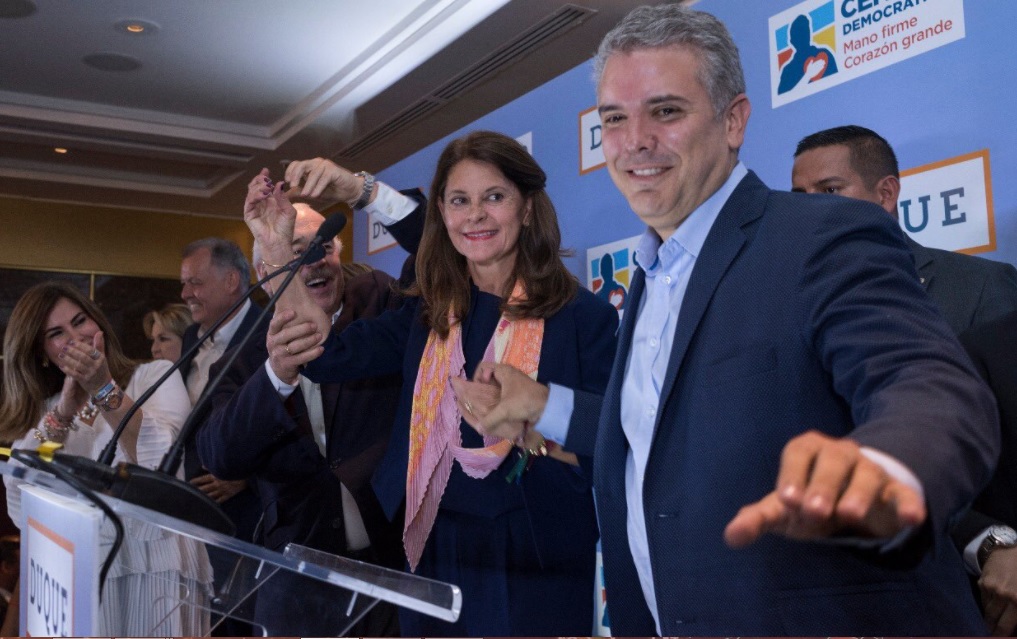Few changes in congress’ complexion, as election tarnished by ballot shortages and fraud allegations
Colombians opted to maintain the current state of gridlock in the legislature, giving no mandate to anyone, and allowing establishment political parties to mostly keep their positions, with only minor realignments, the results of the Colombia election show.
The disorganized and chaotic nature of the Colombia election, even by the country’s notoriously low standards, frustrated voters everywhere. Many who had waited patiently in line to participate were not given the chance to do so after dozens of polling stations ran out of ballot papers, forcing election officials to scramble to produce more.
Having underestimated voter turnout, Colombia’s National Registry printed only 30 million primary ballot papers, meaning hundreds, possibly thousands of people had to be turned away. This led to impromptu protests by angry voters, who chanted “Fraud!” and “Where are the ballot papers!” in videos that circulated on social media.
As the 4:00pm closure time loomed large, an ad-hoc solution dreamed up by election officials was to photocopy yet-unused ballots so that people could take part in the presidential primary poll, in which voters picked who should lead either the right-wing Uribista camp, or the left-wing coalition of progressive parties, in the upcoming presidential election.
Like in previous elections, yesterday’s poll was also marred by allegations of fraud and vote-buying. As many as 2,000 complaints were lodged with election officials, including an incident where voters were offered 40,000 pesos ($14 USD) to cast their ballot one way or another.
Curiously, there were more than 2.1 million votes rejected as null – not including the so-called ‘Voto en Blanco’, or blank vote. About as many votes were rejected in the Colombia election as the number of votes the party that came in second-place in the Senate received.
Election officials offered no explanation for the high number of invalid votes, fueling speculation of vote rigging and fraud from multiple quarters.
Uribe’s hand-picked candidate, the right-of-center Ivan Duque, and leftist former Bogota Mayor Gustavo, won the primary polls by comfortable margins – though nationally Duque got 1.2 million more votes than Petro. The vote was seen by many observers as a precursor to how Colombia’s presidential election could play out just two months from now.
Both candidates now officially represent their respective camps in the poll to pick Colombia’s next head of state in May.
Colombia Election: Voters Pick the Devils They Know
With 98.8 percent of votes counted, Alvaro Uribe’s Centro Democratico (Democratic Center) party came out on top with 19 Senate seats, followed by German Vargas Lleras’ Cambio Radical (Radical Change) party with 16; the Conservative and Liberal parties, with 15 and 14, respectively; the Partido del la U (U Party) garnered a paltry 14 seats, and the left-leaning Green Alliance and Alternative Democratic Pole parties winning 10 and 5 Senate seats, respectively.
With all votes counted in the House of Representatives race, the Liberal Party took the most seats with 35, followed closely behind by the Democratic Center with 32, and the Radical Change party winning 30. Meanwhile, the U Party, Conservatives and Green Alliance picked up 25, 21, and 9 seats, respectively.
The results are a political shot-in-the-arm for presidential hopeful Vargas Lleras’ Radical Change party, which saw its voter support climb by five percentage points, compared to the 2014 congressional elections. Meanwhile, President Juan Manuel Santos’ U Party saw its voter support plummet by nearly nine percentage points.
Three messages can be gleaned from the new complexion of Colombia’s upper and lower houses – the first and most obvious is that critics of Colombia’s peace process won the day. The FARC guerrillas’ entrance into the political arena was roundly rejected by voters. Collectively, their candidates got less than 0.5 percent of the overall vote, meaning they will only get the 10 seats guaranteed to them by the peace accord.
The second is that despite the widespread corruption and “parapolitics” scandals that have dogged Colombia’s establishment parties, particularly the U Party and Radial Change party, voters chose to go with the devils they know instead of less well-known alternatives.
The final lesson is that whoever is Colombia’s next leader – be they populist, leftist, staunchly on the right or anywhere in between – significant economic, political or social reform will be nearly impossible to accomplish, as a president of any stripe will be met with a largely uncooperative congress.

Journalist. Misfit. Malcontent. Provocateur. Is a better Colombia is possible? We’re starting to have doubts.


Pingback:The Case for Voto en Blanco | MiKolombia.com
Pingback:Colombia 'Choosing Between AIDS and Cancer'? | MiKolombia.com